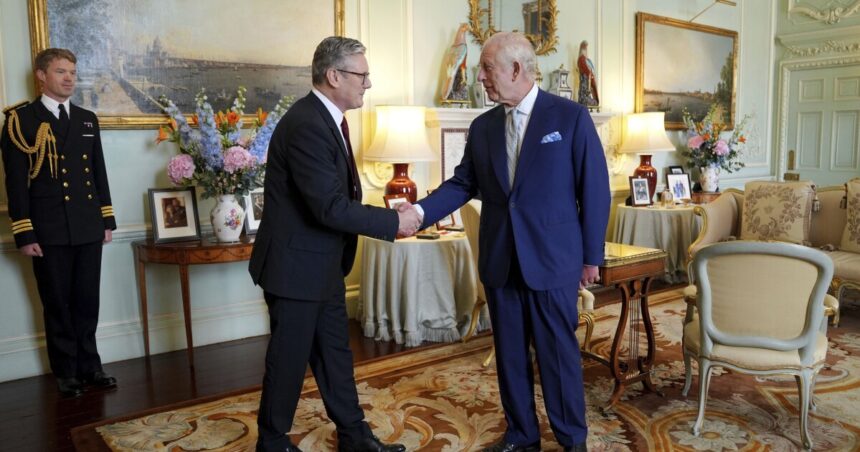Labour leader Keir Starmer was officially appointed as the British prime minister on Friday, following a landslide victory for his Labour Party after more than a decade in opposition.
Starmer took office after a private ceremony with King Charles III at Buckingham Palace, as the outgoing Conservative leader Rishi Sunak and his family departed from the official residence at 10 Downing St.
In his farewell address, Sunak expressed gratitude for serving as prime minister and acknowledged the voters’ “sobering verdict” that led to his resignation.
In a reflective speech, Sunak accepted responsibility for the defeat and apologized to the Conservative candidates and campaigners who worked tirelessly but were unsuccessful.
Related story: Salt in tea has brewed trouble in US-UK relations
With Labour winning 410 seats in the 650-seat House of Commons and the Conservatives 118, Starmer acknowledged the responsibility that comes with the mandate and vowed to regain the people’s trust after years of disillusionment.
As London awoke to a new era, Starmer promised hope and change, recognizing the challenges ahead amidst economic struggles and societal divisions.
Related story: Inquiry slams UK authorities for failures that killed thousands in infected blood scandal
Professor Anand Menon highlighted the shift in the political atmosphere towards stability and medium-term objectives, as Britain prepares for a new government under Starmer’s leadership.
The electoral results signaled a significant shift in the British political landscape, with a diverse Parliament reflecting the public’s dissatisfaction with the Conservatives’ handling of various crises over the years.
Conservative vote collapses as smaller parties surge
The Conservatives faced a historic defeat, leading to a depleted and disarrayed party that will now seek a new leader to replace Sunak.
Smaller parties, including the Liberal Democrats, Reform UK, and the Green Party, made gains in the election, reflecting the electorate’s desire for change and diversity in representation.
Labour was cautious but reliable
Labour’s campaign focused on economic growth, infrastructure investment, and clean energy, resonating with voters and securing the party’s victory.
Conservative missteps
The Conservative campaign was marred by mistakes, from rainy campaign announcements to insider betting scandals, leading to a loss of support among voters.
Amidst the evolving political landscape, voters like Patricia Mulcahy highlighted the nation’s demand for change and the challenges ahead for the incoming government.





